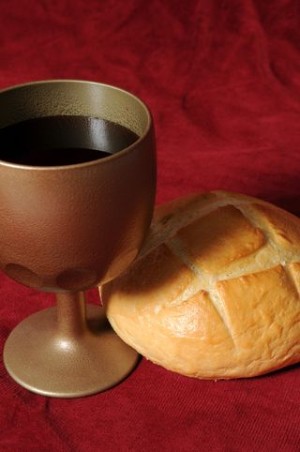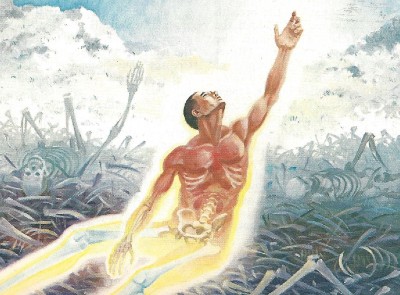Communion: Why I Do It
By Neil Earle

Bringing Jesus’s sacrifice to our remembrance.
Once again, the Christian world is gearing up for the Good Friday-Easter Sunday commemoration of the death, burial, resurrection, and ascension of Jesus Christ. The Bible writers considered these events the indispensables of the faith: “And if Christ has not been raised our preaching is useless and so is your faith” (1 Corinthians 15:14).
Most churches or denominations will handle it in different ways but the great majority will focus on setting forth Bread and Wine to imitate what Jesus commanded us to observe before he went to his brutal death. The broken bread for his body, the wine or grape juice for his blood.
Jesus did ask us to do this and St. Paul said to commemorate it “as often” as we can. But there’s more to the story. While Jesus used bread and wine to point to his death at the last supper, that was the Prelude to the most important historical sequence of events in human history. Jesus used Bread and Wine to signify the salvation and eternal life his death made possible – his own body acting as a sacrificial offering for human sin; His resurrection backing up his promise that “because I live you shall live also” (Luke 24:30-32).
The early church broke bread regularly – indeed in the beginning each meal might have been a memorial of Jesus’ last meal and the New Life given from him (Acts 2:46). Today some turn this simple commemoration into a “religious spectacular” with overdone pomp. Nevertheless, even then, as Paul said, we rejoice that Christ is set forth (Philippians 1:18).
What should not get lost is the totality of what Communion means. For me over the years it has been a regular reaffirmation and reminder of things we dare not forget, including…
Jesus’ triumph over death as his absolute vindication in the eyes of God the Father and hostile human powers. “But I, when I am lifted up from the earth, will draw all men to my self” (John 12:32). By his spiritual victory Satan was driven off the throne of this earth (John 12:31). The Roman power was nullified (Colossians 2:15). The Jewish hierarchy was humiliated. Why? Because the grave could not hold him and death could not defeat him. Indeed, he now holds the keys of Death and the Grave (Revelation 1:18). Is anything more important?

Christ’s resurrection guarantees ours. Artwork by Ken Tunell
These are wonderfully marvelous truths that this season of year impresses upon our minds and spirits. I’m looking forward to Communion more than ever this year. How about you?
 Bringing Jesus’s sacrifice to our remembrance.
Bringing Jesus’s sacrifice to our remembrance. Christ’s resurrection guarantees ours. Artwork by Ken Tunell
Christ’s resurrection guarantees ours. Artwork by Ken Tunell